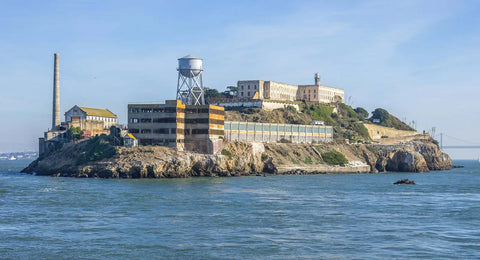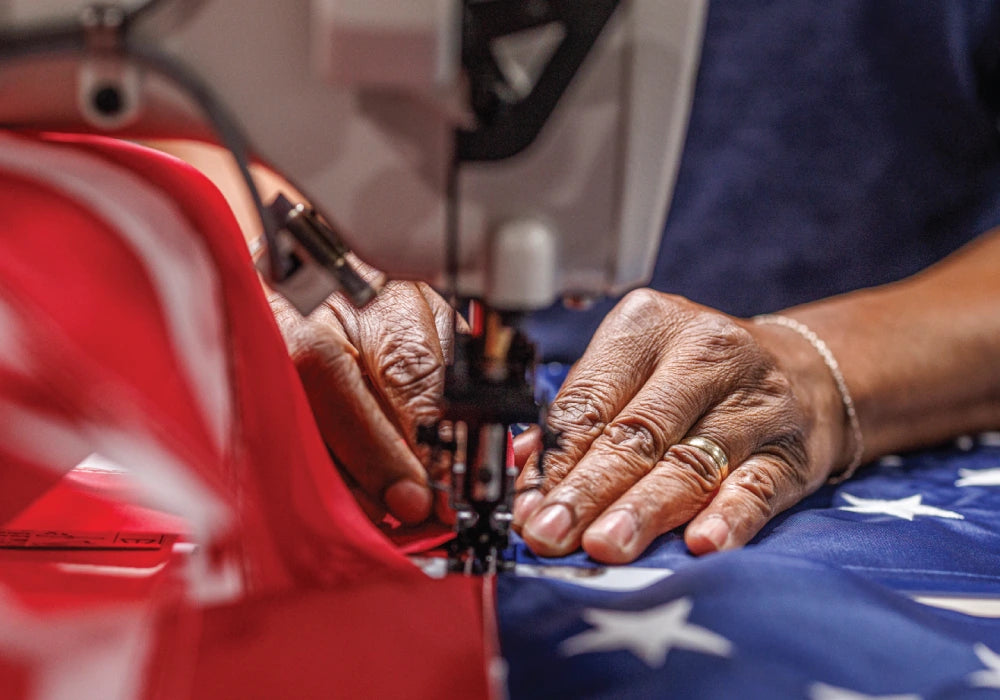March 17

1776
British forces were forced to evacuate Boston following General George Washington’s successful placement of fortifications and cannons on Dorchester Heights, which overlooked the city from the south. Starting March 4, Major General John Thomas, under orders from Washington, secretly led a force of 800 soldiers and 1,200 workers to fortify the area. Realizing their position was now indefensible, British troops and Loyalists departed Boston, sailing to the safety of Halifax, Nova Scotia. The bloodless liberation of Boston brought an end to a hated eight-year British occupation of the city and was the first major strategic and political victory for the Continental Army led by General George Washington.

1898
John Phillip Holland, Irish-American inventor known as the father of the modern submarine, successfully launched his privately built submarine off the coast of Staten Island, NY. 53 feet in length and powered by a gasoline engine and electric batteries, it could reach a speed of 6 knots submerged. After some alterations, the U.S. Navy bought this ship (its first submarine) and named it the U.S.S. Holland in 1900. The Navy commissioned several more ships like it from Holland’s firm, the Electric Boat Company (now the Electric Boat Division of General Dynamics Corporation), which has continued to build most U.S. Navy submarines to this day.


2000
Julia Roberts became the first actress ever to command $20 million per movie with the release of Erin Brockovich. By this time, $20 million had become the standard paycheck for Hollywood’s A-list male movie stars while no other woman had been offered near this amount before. In Erin Brockovich, Roberts proved worthy of her enormous paycheck, leading the film to more than $125 million at the U.S. box office and five Oscar nominations, including Best Picture. Roberts took home the statuette for Best Actress at the 73rd annual Academy Awards.
March 18

1852
In New York City, Henry Wells and William G. Fargo joined with several other investors to launch their namesake business. The discovery of gold in California created a demand for cross-country shipping. Wells and Fargo contracted with independent stagecoach companies to provide the fastest possible transportation and delivery of gold dust, important documents and other valuable freight. It also served as a bank—buying gold dust, selling paper bank drafts and providing loans to help fuel California’s growing economy. After nationalization of shipping routes during WW1, Wells Fargo dropped the transportation and shipping side of the company. After multiple mergers, Wells Fargo remains one of the largest baking institutions in the US to this day.

1881
Barnum and Bailey’s Greatest Show on Earth opened at Madison Square Garden. In the 1870’s Barnum added his name to a traveling show called "P.T. Barnum's Great Traveling Museum, Menagerie, Caravan, and Hippodrome." Later he joined forces with James Bailey, who also had a circus. They called their newly formed show: “Barnum and Bailey’s Greatest Show on Earth.” After Barnum died, Bailey purchased Barnum’s Circus from Barnum’s widow and carried on with the show. After Bailey died, the Ringling Brothers, competitors to Bailey, purchased Barnum and Bailey’s Circus and eventually combined it with their own.

1970
The U.S. Postal Service was paralyzed by the first ever postal strike. The strike, beginning in New York City, was the result of anger over low wages and poor working conditions. 210,000 postal workers eventually joined the strike that lasted approximately eight days. President Richard Nixon called out the United States armed forces and the National Guard in an attempt to distribute the mail and break the strike. The strike influenced the contents of the Postal Reorganization Act of 1970, which dissolved the United States Post Office Department, replaced it with the more corporate United States Postal Service, and guaranteed collective bargaining rights for postal workers (though not the right to strike).
March 19

1931
In an attempt to lift the state out of the hard times of the Great Depression, the Nevada state legislature voted to legalize gambling. At the beginning of the Depression, Nevada’s mines were in decline, and its economy was in shambles. Nevada’s state legislature responded to population flight by taking the drastic measure of legalizing gambling and, later in the year, divorce. Established in 1905, Las Vegas, Nevada, has since become the gambling and entertainment capital of the world, famous for its casinos, nightclubs, and sporting events. In the first few decades after the legalization of gambling, organized crime flourished in Las Vegas. Today, state gambling taxes account for the lion’s share of Nevada’s overall tax revenues.

1966
Underdog Texas Western College defeated Kentucky, 72-65, in the NCAA men’s college basketball final—the first NCAA title for an all-Black starting five. “I wasn’t out to be a pioneer when we played Kentucky,” Texas Western coach Don Haskins told the Los Angeles Times years later. “I was simply playing the best players on the team, and they happened to be Black.” Texas Western's journey to the 1966 NCAA championship was depicted in the 2006 film Glory Road. The year after winning the title, the school became the University of Texas-El Paso (UTEP).


2003
The United States, along with coalition forces primarily from the United Kingdom, initiated war on Iraq. Just after explosions began to rock Baghdad, Iraq’s capital, U.S. President George W. Bush announced in a televised address, “At this hour, American and coalition forces are in the early stages of military operations to disarm Iraq, to free its people and to defend the world from grave danger.” President Bush and his advisors built much of their case for war on the idea that Iraq, under dictator Saddam Hussein, possessed or was in the process of building weapons of mass destruction. The U.S. declared an end to the war in Iraq on December 15, 2011, nearly ten years after the fighting began.
March 20

1852
Harriet Beecher Stowe’s anti-slavery novel, Uncle Tom’s Cabin, was published. It would go on to sell 300,000 copies within three months and was so widely read that when President Abraham Lincoln met Stowe in 1862, he reportedly said, “So this is the little lady who made this big war.” Stowe was inspired by her encounters with fugitive enslaved people along the Underground Railroad and wrote Uncle Tom’s Cabin in reaction to recently tightened fugitive slave laws. The book had a major influence on the way the American public viewed slavery. Along with Ralph Waldo Emerson, Harriet Beecher Stowe became one of the original contributors to The Atlantic, which launched in November 1857.

1854
The Republican Party was formed when former members of the Whig Party met to establish a new party to oppose the spread of slavery into the western territories. The Republicans rapidly gained supporters in the North, and by 1860, the majority of the Southern slave states were publicly threatening secession if the Republicans won the presidency. Republican Abraham Lincoln was elected president over a divided Democratic Party and South Carolina formally seceded from the Union weeks later. After the Civil War, the Republican-dominated Congress forced a “Radical Reconstruction” policy on the South, which saw the passage of the 13th, 14th, and 15th amendments and the granting of equal rights to all Southern citizens. The party continued to dominate the presidency until the election of FDR in 1933.

1965
President Lyndon B. Johnson put the Alabama National Guard under federal control to protect a civil rights march from Selma to Montgomery, the state capital. A previous march organized by Martin Luther King Jr. was halted after state and local police brutally tear gased and billy clubbed protestors. After a federal court ruled another march could proceed, Alabama Gov. George Wallace assured the president that the Alabama National Guard would protect them. But Wallace, a segregationist, then reneged and demanded federal troops be sent instead. Furious, Johnson called up the Guard. The five-day march to the Alabama Capitol began on March 21 and covered 54 miles. It was protected by 2,000 Army soldiers, 1,900 federalized Guard members and scores of FBI agents and federal marshals.
March 21

1952
The Moondog Coronation Ball, widely regarded as history's first major rock-and-roll concert, was held at the Cleveland Arena in Cleveland, OH. The “Moondog” in question was the legendary disk jockey Alan Freed, the self-styled “father of rock and roll” who was then the host of the enormously popular “Moondog Show." Originally a classical music show, Freed started featuring rhythm-and-blues records and liberally used the phrase “rock and roll” to describe the music he was now promoting. Unfortunately, an estimated 20,000-25,000 fans turned out for an event being held in an arena with a capacity of only 10,000. Less than an hour into the show, police quickly moved in to stop the show almost as soon as it began.

1963
Alcatraz Prison in San Francisco's Bay closed down and transfered its last prisoners. At its peak period of use in 1950s, “The Rock," or "America’s Devil Island," housed over 200 inmates at the maximum-security facility. The twelve-acre rocky island, one and a half miles from San Francisco, featured the most advanced security of the time. The former prison remains an icon of American prisons for its harsh conditions and record for being inescapable. In 1972, Alcatraz was transferred to the Department of Interior to become part of Golden Gate National Recreation Area. It was designated as a National Historic Landmark in 1986.

1980
President Jimmy Carter announced that the U.S. would boycott the Olympic Games scheduled to take place in Moscow that summer. The announcement came after the Soviet Union failed to comply with Carter’s February 20, 1980, deadline to withdraw its troops from Afghanistan. Reaction to Carter’s decision was mixed. Many Americans pitied the athletes who had worked so hard toward their goal of competing in the Olympics and who might not qualify to compete in the next games in 1984. At the same time, the boycott symbolized commitment many Americans felt to fighting the oppressive, anti-democratic Soviet regime.
March 22

1765
The British government passed the Stamp Act in an effort to raise funds to pay off debts and defend the vast new American territories won from the French in the Seven Years’ War (1756-1763). The legislation levied a direct tax on all materials printed for commercial and legal use in the colonies. In response, colonists raised the issue of taxation without representation, and formed societies throughout the colonies to rally against the British government and nobles who sought to exploit the colonies as a source of revenue and raw materials. Realizing that it actually cost more to enforce the Stamp Act in the protesting colonies than it did to abolish it, the British government repealed the tax the following year.


1934
The first Masters golf championships teed off in Augusta, Georgia. The Augusta National Golf Club course presented difficulties for many of the golfers, but Horton Smith would go on to win the tournament. However, much of the coverage was focused on Bobby Jones, the man who founded and helped design golf’s most famous course. While the first to achieve a Grand Slam by winning all four major tournaments in the same year, Jones struggled in his inaugural round at the Masters. He finished tied for 13th, 10 shots behind Smith.

1983
The Pentagon awarded a production contract worth more than $1 billion to AM General Corporation to develop 55,000 High Mobility Multipurpose Wheeled Vehicles (HMMWV). Nicknamed the Humvee and designed to transport troops and cargo, the wide, rugged vehicles entered the spotlight when they were used by the American military during the 1989 invasion of Panama and the Persian Gulf War in the early 1990s. In 1992, a civilian version of the Humvee, known as the Hummer, went on sale. The hulking, attention-grabbing road warrior tipped the scales at some 10,000 pounds and got less than 10 miles per gallon. It was a hit with Hollywood celerities, such as Arnold Schwarzenegger, who went on to own a fleet.
March 23

1839
The initials “O.K.” were first published in The Boston Morning Post. Meant as an abbreviation for “oll korrect,” a popular slang misspelling of “all correct” at the time, OK steadily made its way into the everyday speech of Americans. During the late 1830s, it was a favorite practice among younger, educated circles to misspell words intentionally, then abbreviate them and use them as slang when talking to one another. Of all the abbreviations used during that time, OK was propelled into the limelight when it was printed in the Boston Morning Post as part of a joke. Its popularity exploded when it was picked up by contemporary politicians, including incumbent president Martin Van Buren during his reelection campaign.

1983
In an address to the nation, President Ronald Reagan proposed that the United States embark on a program to develop antimissile technology that would make the country nearly impervious to attack by nuclear missiles. Reagan’s speech marked the beginning of what came to be known as the controversial Strategic Defense Initiative. After talks with the Soviets were stalled over issues of what kinds of nuclear weapons should be controlled, Reagan became enamored with proposals of antimissile satellites utilizing laser beams or other means to knock Soviet nuclear missiles out of the sky before they had a chance to impact the US. The Strategic Defense Initiative never really got off the ground–by the mid-1990s, following the collapse of the Soviet Union and with costs skyrocketing, it was quietly shelved.

2011
Actress Elizabeth Taylor, who appeared in more than 50 films, won two Academy Awards and was synonymous with Hollywood glamour, died of complications from congestive heart failure at a Los Angeles hospital at age 79. The violet-eyed Taylor began her acting career as a child and spent most of her life in the spotlight. Known for her striking beauty, she was married eight times and later in life became a prominent HIV/AIDS activist.




